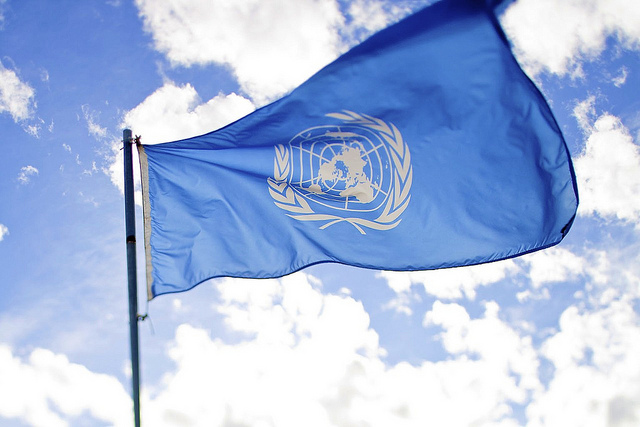The UN Global Compact for Migration & its struggle for international coherency
Lisa Maria Kuke | 14 Dec 2018
The United Nations declared its first global agreement on enhancing safety and regulation in the scope of international migration. As the first of its kind, the Global Compact for Migration displays once again the narratives with which migration is discussed in our time and the quest for coherence in a polarised arena of global actors.
On Monday, 10 December 2018, the UN concluded the historically first international agreement on migration among 164 out of its 193 member states, namely the “Global Compact for Safe, Orderly and Regular Migration”. The agreement is aiming to create a comprehensive, cooperative framework to commonly manage and secure international migration and reduce illegal movements. However, many member states also refrained from joining the legally non-binding pact whose execution is based on voluntary participation. The reason for this withdrawal likely lays in the political agency that some states subscribed themselves to in recent years.
The aim
The outlining of the agreement started in 2016, when the irregular migration movements from conflict-stricken areas reached its peak in Europe and the affected states began to feel the consequences due to an increased influx of political refugees. As a reaction of how states were coping with this scenario, the UN’s initiative attempted to enhance and reinforce the inter-state cooperation and coordination to make regular as well irregular migration safer and in line with basic human rights regarding the treatment of migrants.
In the final draft, the signing states agreed upon 23 goals, including the improvement of living and labour conditions of migrants, actions against discrimination, and a more structured data management beyond country borders. The participants of the agreement are hereby not bound to treaty law but come together to signalise their political intent, acknowledging their similar challenges and different capacities to solve the problems of migration.
The opposition
However, states as the US, Australia, Austria, Israel and several Central and Eastern European states objected the UN provisions, fearing that it would accelerate “unwanted” immigration, namely refugee movements. While still supported under the Obama administration, the U.S. government under Donald Trump even refused to participate in the drafting of the Compact. Also Australia, a country with strictly selective and exclusive migration policies decided to not join the community of signing states. The opposing countries mainly argue that an internationalisation of migration policy practices may infringe their national security and national migration law. The argument that the state’s sovereignty is affected by an international agreement due to discussing supranational and border-crossing issues in a commonly shared narrative, is often chosen by conservative movements to strengthen their internal position and to foster their image of protectionism. Hereby, several European states, as Austria and Hungary, have experienced an increasing trend of conservatism and even right-winged political leadership in recent years, which aim at maintaining and strengthening their domestic agenda in the international political arena.
Polarisation vs. coherence
Although the purpose of the UN Global Compact for Migration is surely not a further polarisation of the international community, it calls for the involved states to take a stand in the question of how to perceive international immigration and emigration. A rejection is a strong point drawn and a clear message to the rest of the global community that a common agenda and coordination is not officially supported by the respective political leadership. While it is easy from a liberal perspective to point fingers at the non-participating states now, one must rather question the underlying motives and fears that strike governments at the sound of the topic of migration.
As globalisation accelerates, people keep moving at faster paces through the world, voluntary as well as forced. While the UN agreement has the practical approach of state cooperation beyond borders and domestic politics to make migration safer and more manageable, opposing states reject the idea of having to welcome migration as a “natural” part of our world in the first place. In countries as Chile, the Czech Republic, Hungary, Slovakia, Italy and others, the structurally rooted problems of society, social insecurity, and the lack of political representation, have given political parties and governments the ground to build up fear for external adversaries. It is easier to turn to the abstract, and the outsiders, instead of searching for the causes of domestic issues on the inside. In some cases, years of political mismanagement and corruption have driven some of these states into a dead end of social and economic prosperity. Withdrawing from the international pact seems just as a logical continuation of the chosen agenda of rejecting immigration as a cause of many domestic problems.
Discussing international migration has developed into an increasingly polarised and emotionalised issue, as many domestic and social issues have been linked to this phenomenon in recent years, which thereby, led to the neglect of the structural and conflictual aspects that not only cause irregular migration, but also the rejection of immigration itself. Nonetheless, for the participating states of the UN Global Compact for Migration, there is hope that an international forum for discussion, exchange of expertise, and collaboration, can finally bring more structure and coherency into the complex and tangled reality of international migration these days.










Leave reply